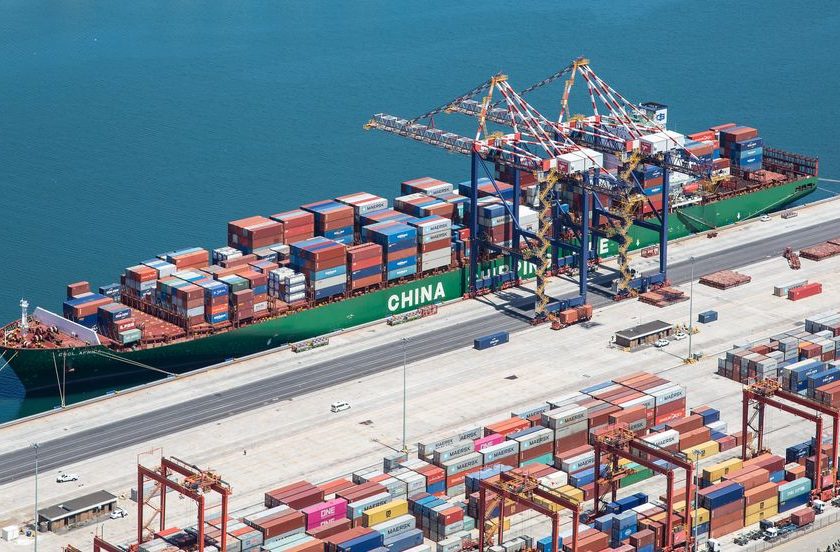Cape Town battles high winds
NewsSouth African transport utility Transnet says that it is managing to cope with the extreme weather conditions that are increasingly affecting Cape Town Container Terminal
Cape Town port sees significant congestion reduction, with truck turnaround times improved by a third, and breaking reefer loading records.

Congestion at the South African port of Cape Town has greatly improved, with truck turnaround times falling by about a third to 51 minutes during February, with fewer vessels waiting at anchor.
The number of trucks handled at the port increased from 5,500 a week at the start of February to 7,865 a week by the end of the month, while the port has broken its reefer loading record, loading 1,726 on to a single vessel on 10 February 2024, breaking the 2021 record of 1,711.
The acting Western Cape Terminals Managing Executive, Oscar Borchards, attributed the improvement to the optimisation of the Navis terminal operating system and better management of the container yard.
The South African port sector in general has come under the spotlight because of congestion but Cape Town has attracted particular criticism because it is having to cope with rising fruit exports at a time when other South African ports are seeing falls in many types of cargo. The progress has been made during the deciduous fruit season, with improvements in place for the upcoming citrus season.
Cape Town Container Terminal (CTCT) is working with fruit exporters to ensure that trucks arrive at the port at the optimum time for loading, with some consignments arriving while the receiving vessel is already being loaded.
CTCT’s reliance on fruit exporters gives it another challenge in comparison with other ports that rely on other forms of container cargo, as it must manage its reefer slots at a time when there is a global shortage of refrigerated containers.
Fruit industry association Hortgro welcomed the improvements but said that they were partly the result of fewer wind delays in comparison with the same time in previous years and that there was still a long way to go.
It also revealed that some traders had switched to other terminals and ports, with some forced to use specialized reefer vessels at greater expense. Hortgro said that improving the port’s reputation will take a long time, with outdated equipment one of the main problems.
Almost half of Cape Town’s 30 rubber tyred gantry cranes (RTGs) were out of action late last year. Seven refurbished RTGs that were shipped from Los Angeles came into operation at the port in December but these seem to have been deployed in the Multi-Purpose Terminal.
By subscribing you will have: